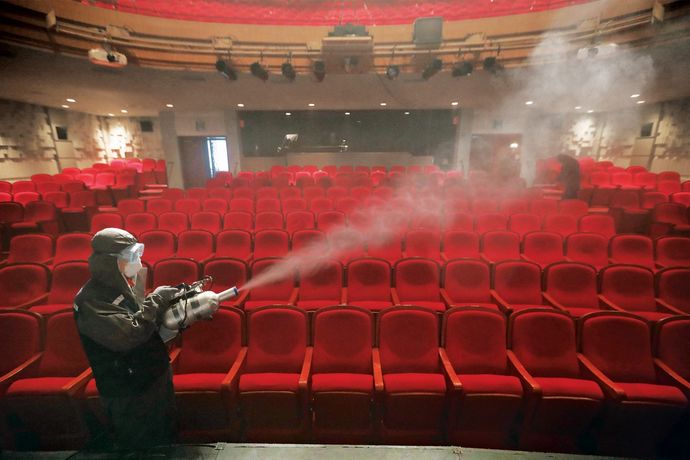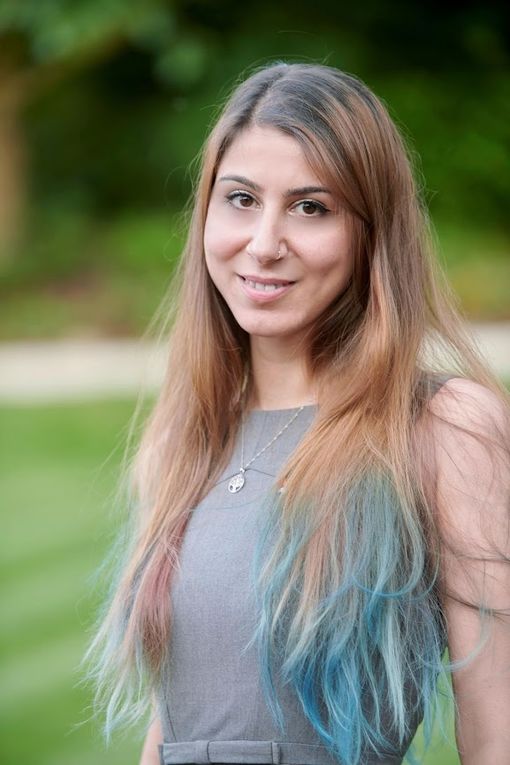About this page

The Covid-19 pandemic as a global phenomenon has affected the live performing arts in fundamental ways that are still being understood. In early 2022, it is now clear that the term ‘after’ is premature. The ‘Theatre after Covid’ project proceeds from the hypothesis that a profound and sustained crisis of this kind will have far-reaching effects on the institutional fabric of the performing arts. The focus will therefore be on institutional perspectives.
The current research project aims to analyse the structural crises in the UK theatre industry brought about by the Covid pandemic and explore how the industry might adapt and transform in response to the crisis. The project will explore the following themes: work and employment structures, digitisation, funding and income generation, diversity, aesthetic trends and internationalisation.
The study is part of a joint research project on the long-term institutional effects of Covid led by Prof Christopher Balme (Principal Investigator) and Dr Roaa Ali (Postdoctoral Associate Research), and Thomas Fabian Eder (Researcher) in collaboration with LMU Munich under the LMU International Research Professorship Program.
The project consists of a mixed methods approach blending online surveys, structured interviews and discourse analysis situation drawing on an existing database and other forms of data mining.
The first phase of the project is a survey, which we hope will give important and detailed insights to help with planning and advocacy for the theatre sector.
We invite you to fill in the survey, which will only take 10 -15 minutes to complete. It will close on Wednesday 31 August. The survey is aimed at both individuals actively working in the performing arts field, including theatre staff and independent practitioners working across organisations, and senior representatives of performing arts organisations.
Access the The impact of the Covid Pandemic on the performing arts survey
For more details or if you have any questions, please contact Dr Roaa Ali by email, roaa.ali@cssd.ac.uk
Additional information on this project ‘Corona Querschnittsprojekt’ is available on our project partner’s website,
Meet the project team
- Prof Christopher B Balme, Principal Investigator
- Dr Roaa Ali, Postdoctoral Research Associate
- Thomas Fabian Eder, Researcher

Christopher Balme is a visiting Professor at Central and has been a Professor of Theatre Studies at the LMU Munich since 2006. He obtained his PhD at the University of Otago, New Zealand, and completed his postdoctoral thesis in 1993 at the University of Munich. He is editor of the magazine Forum Modernes Theater.
His major publications include: Decolonizing the Stage: Theatrical Syncretism and Post-Colonial Drama (1999); Introduction to Theater Studies (1999); The Theater of Others (ed.) (2001); Pacific Performances: Theatricality and CrossCultural Encounter in the South Seas (2007); Cambridge Introduction to Theater Studies (2008); The Theatrical Public Sphere (2014);The Globalization of Theater 1870-1930: The Theatrical Networks of Maurice E. Bandmann (2020).
He recently published: Theater Institutions in Crisis. European Perspectives (eds. Christopher Balme, Tony Fisher) (2020). He is spokesman for the DFG research group Crisis Structures in the Arts and Principal Investigator of the ERC Advanced Grant Developing Theatre: Building Expert Networks for Theater in Emerging Countries after 1945.

Roaa is an interdisciplinary researcher, writer and teacher on race and diversity in the Creative Industries, inequality and institutional change.
Roaa obtained her PhD in Drama and Theatre Arts from the University of Birmingham (2015), and her thesis explored Arab American and ethnic minority art production within the American cultural and creative industries. Her research in this area will be available through a monograph titled Contemporary Arab American Drama: Cultural politics of ethnicity, Otherness and visibility, and a co-edited volume titled Arab, Politics and Performance (both contracted with Routledge, forthcoming 2022).
She is currently working with Professor Christopher Balme on the ‘Theatre After Covid’ project, with a particular focus on the impact of Covid on diversity strategies in the theatre industry and the CCIs in general.
Roaa is also an Honorary Research Associate at the University of Manchester. From2018 – 2022, she was part of the Centre on Dynamics of Ethnicity (CoDE) at the University of Manchester where she was researching ethnic inequality in the Creative and Cultural Industries. She recently completed a project exploring the impact of Covid-19 and BLM on ethnic inequality in CCIs, and co-authored a wide-industry report titled ‘the impact of Covid-19 and BLM protests on ethnically diverse creatives and cultural Workers’.
She has published in a number of international journals, co-edited volumes and media outlets including in: Cultural Sociology, Cultural Trends, Drama Education: The Journal of Applied Theatre and Performance (RiDE), Journal of Arts and Community, The Methuen Drama Companion to Theatre and Interculturalism, and Accessibility, Inclusion, and Diversity in Critical Events, The Conversation, Discover Society and Surviving Society Podcast
Thomas Fabian Eder is a researcher and independent art manager based in Berlin and Western Austria.
As an art manager, Thomas Fabian Eder co-founded the annual seekult festival at Lake Constance, coordinated the distribution office of the Berlin Performing Arts Program and the international activities of the Berlin Performing Arts Festival (PAF). He headed the PAF&friends Festival, the development of the festival networks Bridging the Scenes and Festivalfriends, the Festivals discourse and professional visitor program 2016 - 2020 as well as its international collaborations.
In this context, Thomas Fabian Eder was involved in the founding of The European Association of the Independent Performing Arts (EAIPA) where his focus shifted to research. He led the research project “An Introduction to the Independent Performing Arts in Europe,” published by EAIPA in 2018 in a first and in 2021 in a second edition. As a research associate he joined the research group “Crisis Structure of the arts” at Ludwig-Maximilian-University Munich in 2020. In this context he is currently developing a neo-institutional approach to the organizational field of independent performing arts in Europe and an analysis of the impact of the coronavirus pandemic on the field in the D-A-CH countries.
His involvement in the producing performing arts is limited to jury and committee functions, i. e. at the German national fund “Verbindungen Fördern“ or the residency program of Schloss Bröllin.
